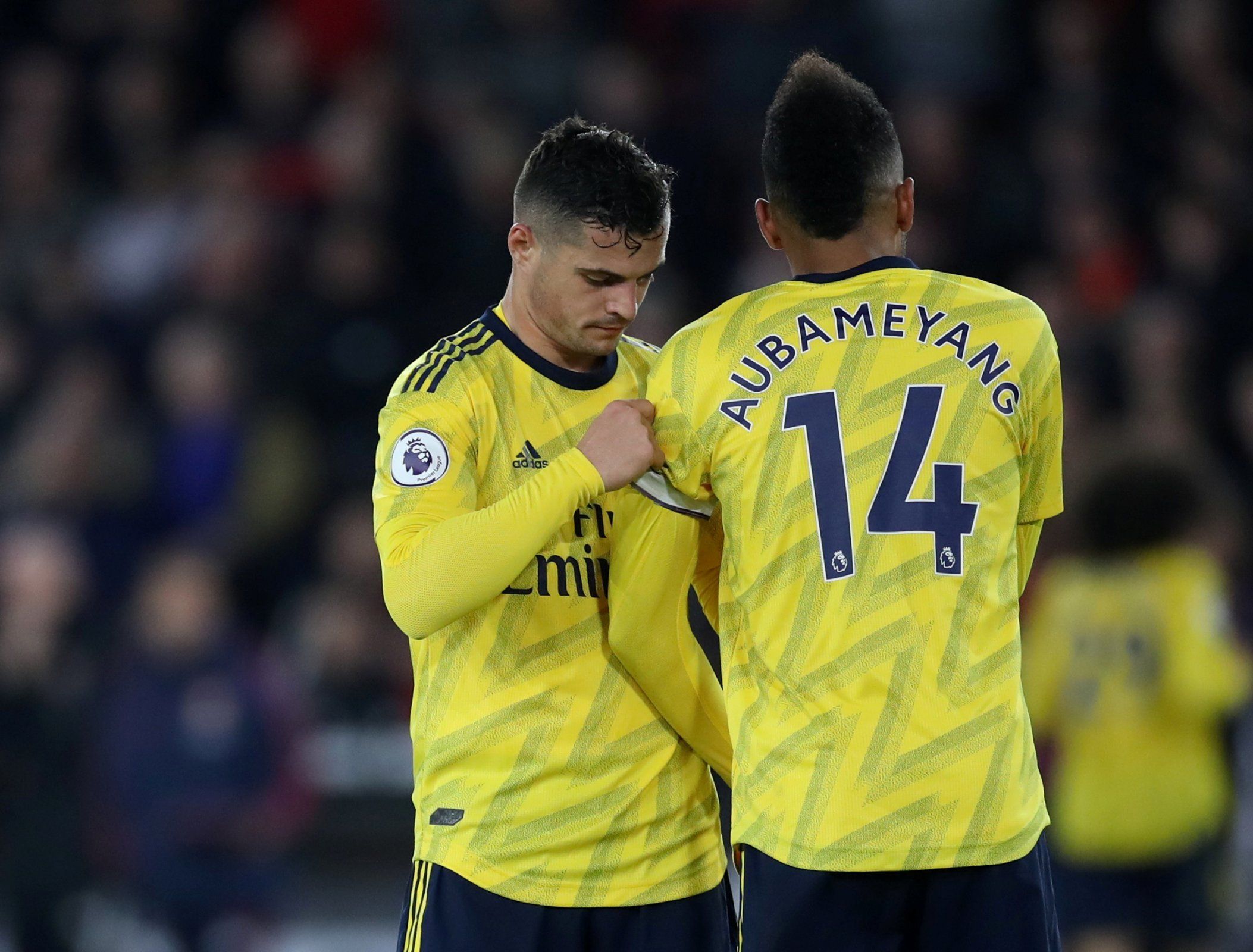When Arsenal’s Granit Xhaka cupped his ears to the Emirates crowd and threw his shirt to the floor on being substituted against Crystal Palace, England and its bulldog recoiled in horror. This was behaviour unbecoming of any Premier League footballer but deriving from a club captain it was deemed unforgivable.
Skippers lead by example. They inspire. They absolutely do not throw an almighty strop and show such blatant disrespect.
Our indignation was a further illustration of the lofty regard in which the role is held in this country, the armband evoking the classy leadership of Bobby Moore not to mention an untold number of club captains we’d be heartened to have alongside us in the trenches. It is embedded in our DNA that captains are totems. We look up to them carrying as they do their club’s reputation and fortunes on their broad shoulders.
Watch Premier League Live Streams With StreamFootball.tv Below
Yet increasingly this elevation of the honour is out of step with the rest of the world. In many countries and at many clubs the role is viewed as a token responsibility, given to the most talented player or more typically one who is somewhat long in the tooth.
Argentina’s captain is Lionel Messi and when La Albiceleste are a goal down with minutes to spare they turn to their extraordinarily gifted forward to produce some twinkling magic, not to rally the troops and pound a fist into a palm. More times than not, it’s an approach that works for them.
Arsenal's decision to appoint Pierre-Emerick Aubameyang as the new captain points towards an approach that closely resembles what the Argentine's have done with Messi.
And with the influx of foreign coaches and players to our shores it is becoming commonplace for the captaincy role to be downgraded in its importance.
After losing captain Laurent Koscielny to Bordeaux in the summer Unai Emery asked the players to vote on the French defender’s replacement while at Manchester City – hardly a team that suffers from not having a motivating figurehead on the pitch – David Silva wears the armband.
It is not possible to find a player least like Tony Adams or Roy Keane than the slight-of-build, silky-smooth midfielder. It is pertinent too that should Silva not be playing the policy of determining who should skipper simply comes down to whoever has been at the club the longest. At Spurs, Hugo Lloris is the symbolic leader, a goalkeeper.
In the modern era football is far less attritional and combative and is played on much nicer surfaces and the idea of a mud-splattered general growling orders at team-mates already dealing with a headful of tactical instructions just seems archaic. Yet still we hold onto the idea of it.
“We sometimes get obsessed with it in this country,” Gary Lineker said last year, when a national debate raged over who should be the Three Lions’ latest Churchill in shorts.
“No other country in the world does. They have a vote. They have a one, two and three. And there is no fuss made about it. We tend to create this massive maelstrom about it. It doesn’t matter.”
It doesn’t. Not really. Not anymore.

